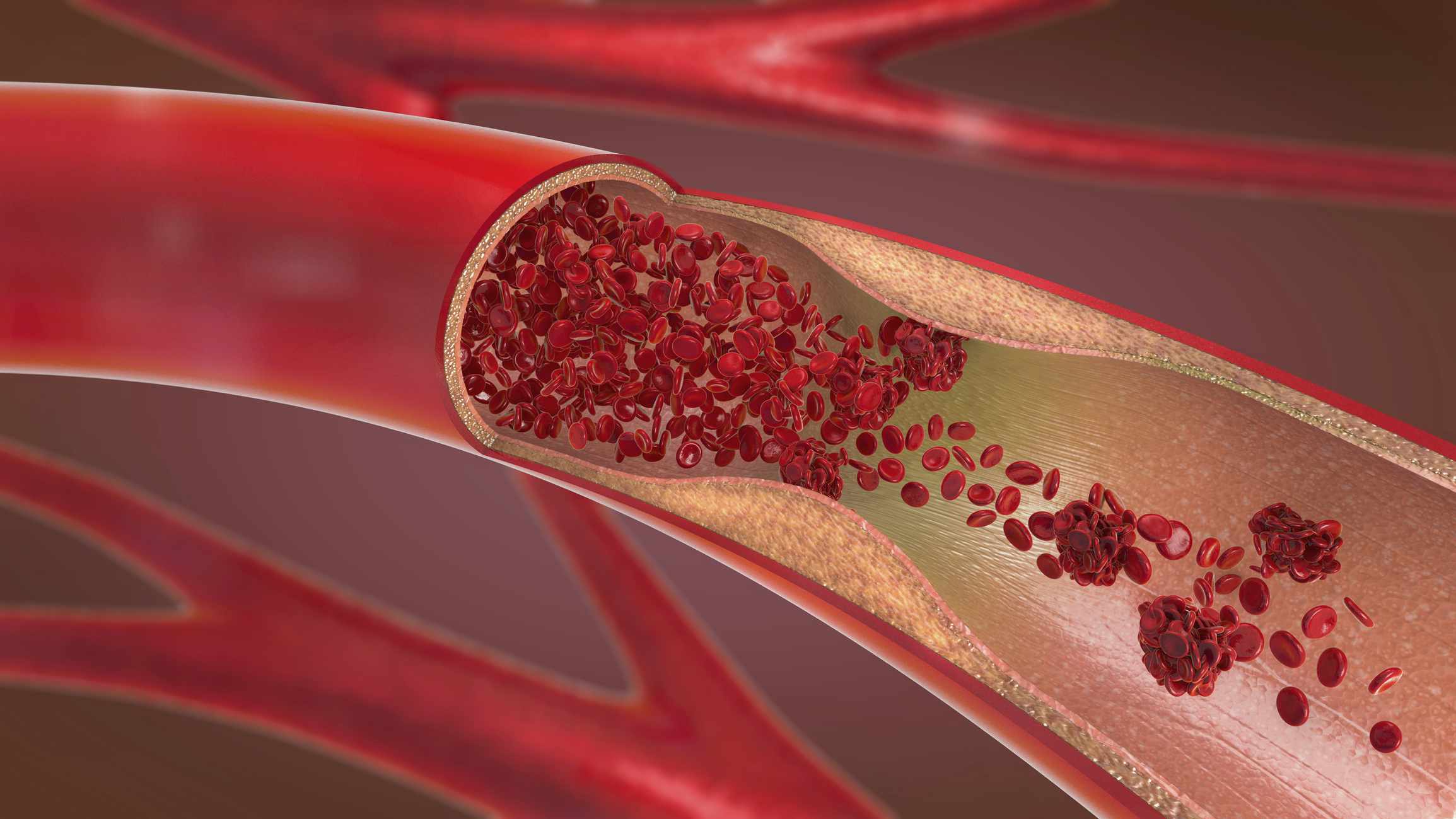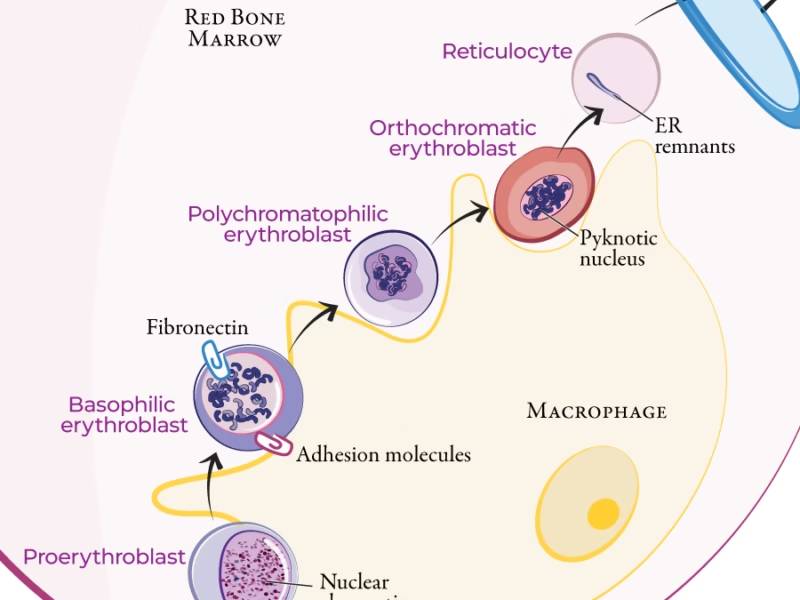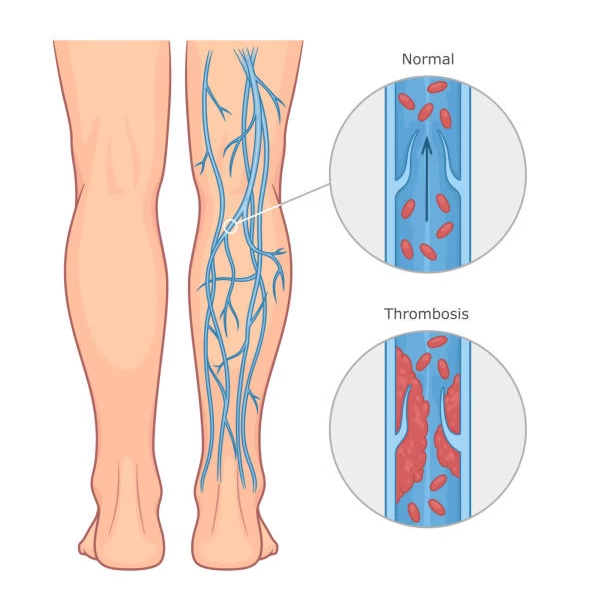Arteries play a vital role in the circulatory system of our body. They carry away blood from the heart whereas veins take blood into the heart from other parts of the body. Arteries are thick and more elastic than veins, as they carry blood at high pressure (pumped from the heart). Due to the unhealthy lifestyle, for some people, blood gets thick quickly. The high amount of proteins, calcium, red cells, white cells, platelets, etc. in the blood causes thickening. Such condition paves way for blood clots and damages to endothelium. What is endothelium? Arteries have endothelium (a lining in their walls made of cells) that promotes a smooth flow of blood from the heart to other parts of the body. Damages to this thin layer can cause the hardening of arteries. This condition is called atherosclerosis or arteriosclerosis.
What Causes Atherosclerosis?
Too much cholesterol and fat content in the artery wall is the major cause of this condition.
This deposition of substances is medically called plaque buildup in arteries. If plaque in arteries continues to collect, it can cause severe blockage and disrupt the blood flow. Sometimes, platelets gathered in the affected area and form blood clots.
Such clots can be life-threatening. It leads to heart attack and stroke.
What Are The Atherosclerosis Symptoms?
Atherosclerosis cardiovascular disease is more common in adults than in children. Usually, there will be no symptoms until plaque breaks out or when there is an interruption in blood flow.
The symptoms of arteriosclerosis vary depending on the type of artery affected.
Coronary arteries
Coronary arteries are located near the heart and when there is damage or hardening here, the blood supply to the heart fails. This causes heart attack and angina. Symptoms include:
Chest pain
Faintness
Coughing
Vomiting
Carotid arteries
These are present near the brain. Damages lead to stroke. Symptoms include:
Weakness
Headache
Paralysis
Difficulty in breathing
Facial numbness
Immediate medical attention is required, when a person has these signs.
Renal arteries
If the blood supply to the kidney got affected or limited, then renal artery blockage arises. This leads to chronic kidney disease and symptoms include:
Swelling of the hands and feet
Loss of appetite
Difficulty in concentrating
Peripheral arteries
These arteries supply blood to the pelvis, legs, and arms. Hardening of the arteries in the legs leads to Peripheral artery disease.
This condition increases the chances of stroke and heart attack. Severe damage to the tissues leads to immobility and pain in the limbs.
It also requires earlier medical attention to avoid life-threatening situations.
Who Is At Risk?
People who have poor lifestyles have a higher risk of getting affected with atherosclerosis. Certain health conditions include:
A family history of cardiovascular disease
Continuous tobacco smoking or high levels of alcohol intake
Low or no physical activity
Large intake of foods with “bad” cholesterol
A poor diet containing high levels of sugar, Trans fat, salt, cholesterol, etc.
Diabetes
High blood pressure
Sleep apnea
Atherosclerosis Prevention

Lifestyle changes like following a heart-healthy diet, foods rich in omega-3 fatty acids, and soluble fiber are the only way for atherosclerosis prevention. It is possible to live a long life, even with atherosclerosis but when strictly managed with proper heart-healthy foods.
Maintaining a healthy weight and doing regular exercises avoid thickening of blood or formation of cholesterol in the blood.
Medication
Medications are suggested based on the individual’s needs. Common recommendations are for preventing blood clots, reducing sugar levels, and to lower blood pressure.
Surgeries are carried out in severe cases where your doctor may either remove plaque buildup or bypass surgery to carry blood flow effectively.
Final round-up
Atherosclerosis is a serious condition as it leads to life-threatening diseases like arteriosclerosis heart disease. Early diagnosis, proper treatment, a healthy diet, and healthy lifestyle choices are the few ways to reduce the risk of suffering from this disease. As this mostly affects elders, a regular checkup (as suggested by your doctor) can help avoid any diseases.


